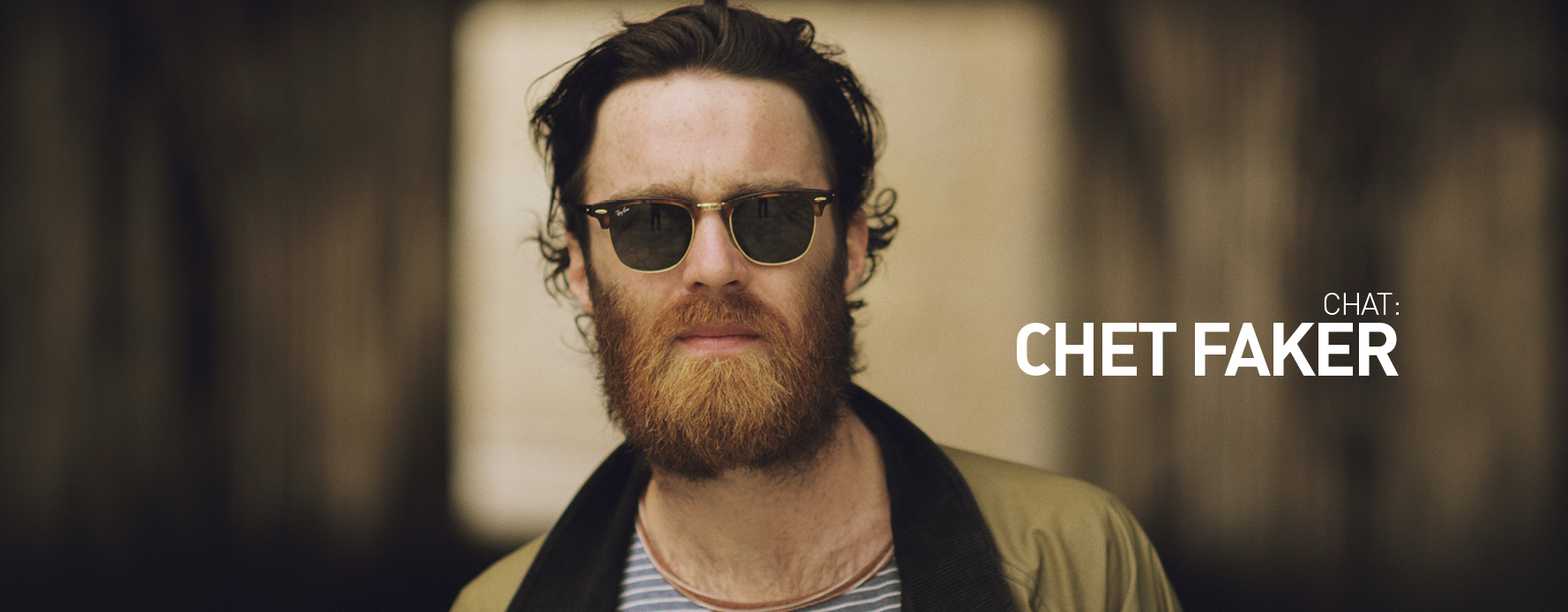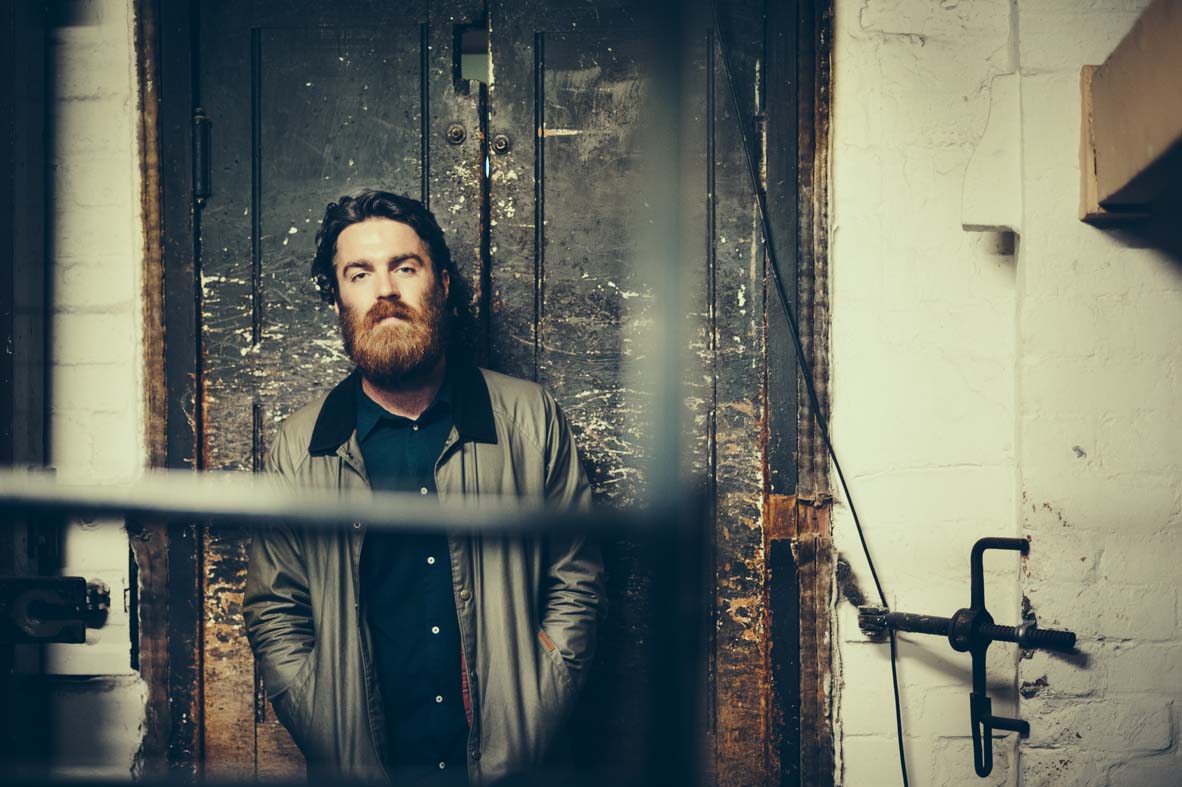Chet Faker: Bearded Baritone
 Thirsty for JUICE content? Quench your cravings on our Instagram, TikTok and WhatsApp
Thirsty for JUICE content? Quench your cravings on our Instagram, TikTok and WhatsApp

Nick Murphy has ascended up the musical totem pole relatively quickly. It’s not very difficult to understand why – from his deep, crackling voice to his elusive beard, and pinpoint songwriting acumen, we’d have figured that someone like him would have stepped into the limelight a little earlier. But then again, timing is everything; Future Classic’s gradual climb to the top of indie electronic/dance global awareness helped a lot, and from then onwards he’s worked with everyone from fellow Oz counterparts Flume and Ta-ku to Say Lou Lou and Goldlink. Well, we’re all set to be serenaded down south by the man, but first, JUICE talks to him about the shift in studio aesthetics today, his debut offering Built On Glass, as well as his magnificent facial hair.
Imagine we haven’t heard of you even now (yeah, right), how would you pitch your music to the uninitiated?
I don’t pitch. I just make music. I just make it available. If people like it, they like it.
You declared in an interview that soul music was the last time pop was cool, what about popular music now that just doesn’t do it for you?
I don’t know, I probably have a different opinion on that now. I said that about three years ago. I actually think there’s a lot of great pop music in the world today. I probably will rehash on that comment.
The track that catapulted you to popularity was a ‘No Diggity’ cover though, was the ‘90s the last decade you liked pop music?
I don’t know, mate. I grew up in the ‘90s. That was before I thought about music, and what was pop and what wasn’t, or what genres were. So yeah, pop music would have been a big thing for me in the ‘90s, because at that age you don’t even know the difference. But in the ‘00s, that was when I first started making music, and I got more interested not so much into records on the radio, but artistes on the internet. I guess you can say the ‘90s was a time where I listened to a lot of pop music growing up.
Built on Glass was recorded using lo-fi equipment in a meat cooler-converted studio. Was there an artistic choice behind this – i.e. did the environment contribute to the sound of the album or the direction you took?
Totally, yeah. I’ve always felt a real connection to the space I’m in [when] making music. The space feels right, y’know. I’d been looking for a studio for years, and this definitely contributed in a lot of ways. It literally contributed in terms of the reverb, y’know? There’s the room sound, which you can hear on the vocals, where sometimes you’d put a microphone on a table on the other side of the room. And also, I like the fact that I could come in, and no one else would be there, and I could make as much noise as I wanted. It’s also real important, because the whole album came down to self-analysis, and looking at yourself. I don’t think I could have done the album without that space, because it’s real intricate stuff, I couldn’t have done it somewhere with distractions.
Despite the same DIY and bedroom producer approach taken, the album stepped up in production quality as compared to the EP. Has the studio been rendered obsolete by DAWs and VSTs?
I wouldn’t say obsolete. There is still a need for studios. I think they’re getting smaller, definitely. But yeah, I’m a musician and a producer, but I still think studios are relevant, but not necessary.
Speaking of which, you, Flume, Ta-ku, the Future Classic roster, and more are part of a wave of electronic acts from Oz. We’re curious, what was the scene like before you guys took off internationally?
Well, I’m from Melbourne, Flume’s from Sydney, and Ta-ku is from Perth, and that’s almost the whole of Australia, so we’re from very different scenes. Internationally, we’re represented together, but I can’t really speak for the two of them.
How about just Melbourne then?
I can definitely comment on that. It was good. For me in particular, I came from a real club background. A lot of my friends are awesome club and dance producers. And yeah, there was already the grass root support for it, it just hadn’t jumped overseas yet.
There’s a specific sound attributed to LA’s beat scene and the UK’s sound system culture-derived genres. What would you say is the tying thread of Australia’s electronic music?
Personally, I don’t think there is a sound. The only thing tying the scene is the fact that we’re all Australians. We’re pretty cut-off from the rest of the world, and there’s a lot of room to be whatever you want to be, and do your own weird thing without having to conform towards a really specific scene. Space is very literally and conceptually a big thing in Australia. We’re not all living on top of each other. I mean like for even myself, I came from that club dance scene, but I wasn’t playing my music to any of my friends or anything. I was doing all of my music in my garage, y’know? The scene definitely influenced my music, but not in a massive way. I think the most important thing was that we gave each other more room.
The album’s name is reflective of the fact that this is your debut – there’s fragility to every artiste’s first creation. With the reviews and reactions coming in, do you still feel like your album is built on glass?
Yeah, it is what it is when I put it out. I always feel that when I put something out, it stops changing. It stops changing for me. I have no control over it anymore. I always think of a release as a snapshot in time. It never changes no matter how it’s received by people. It encapsulates everything that happened to me over those two years. I haven’t even listened to it since I put it out. It’s finished for me. It’s all about making it for me, and when it’s finished, it becomes everyone else’s.
Finally, how much longer are you sticking to that beard?
It’s stuck to me.
Chet Faker will be playing at St. Jerome’s Laneway Festival Singapore 2015 on Saturday 24 January ‘15.


 Get Audio+
Get Audio+ Hot FM
Hot FM Kool 101
Kool 101 Eight FM
Eight FM Fly FM
Fly FM Molek FM
Molek FM